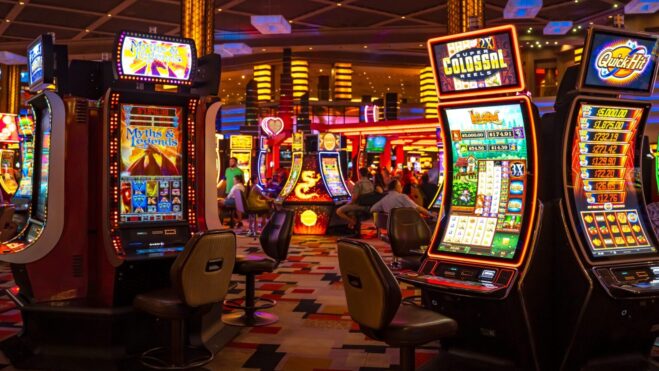What The Gambling Industry Doesn’t Understand About The Anti-Gambling Crusaders
There’s a mismatch of concerns between pro- and anti-gambling groups, and it's a situation that can be improved by getting past stereotypes.
4 min

There’s a common perception that if someone is an anti-gambling activist, they’re either excessively religious or they just don’t like gambling.
There can be some degree of truth behind that perception, but it also misses some of the legitimate concerns that anti-gambling people raise.
People who oppose gambling for religious reasons have biblical text to cite, but the actual negative impact of gambling can go far beyond what’s cited in a biblical injunction against gambling.
Anti-gambling organizations also raise issues besides morality. A lack of responsible gambling policy, inadequate enforcement of existing gambling, and flawed incentive structures can lead someone to oppose gambling expansion without invoking moral concerns.
Meanwhile, some of the most common arguments the gambling industry leans on are increased tax revenue and making an illegal activity that’s already taking place legal and safe.
There’s a mismatch of concerns between pro- and anti-gambling groups, and it’s a situation that can possibly be improved if the gambling supporters try to understand the opposition to gambling expansion a little better.
Religious objections to gambling go beyond scripture
In multiple surveys, Lifeway Research asked pastors across the United States about sports betting. One survey was completed in 2018 and the other in 2023. In 2018, the survey asked pastors what they would do if sports betting was legalized in their state. Eighty-eight percent of respondents felt they would “offer counseling for those struggling with debt or addiction.”
In 2023, only 44% of pastors had offered such counseling.
This reveals a large gap in intentions to act on sports betting and actual actions taken. Fifty-five percent of the pastors surveyed believed gambling was morally wrong, so it may seem surprising that pastors have done relatively little to act on sports betting.
“I think a lot of pastors are saying if the legislative path is closed to us, let’s put our focus on the main thing of our church,” Lifeway Research Executive Director Scott McConnell said.
Fifty-six percent of pastors in the 2023 survey answered that they haven’t felt the need for their church to address sports betting. After the pandemic, pastors had more pressing issues.
“Churches lost a lot of attendees and had to convince them to start coming back and try to reach new people to try to come back to church,” McConnell said. “That’s going to be a bigger priority to a pastor than chasing one lifestyle issue that many of them consider wrong or sinful.”
The Bible doesn’t explicitly prohibit gambling. Rather, the Bible includes passages that cast suspicion on get-rich-quick schemes and condemn excessive pride.
The injunction to “love thy neighbor” is also important to religious anti-gambling voices.
“In many gambling situations, there are those who know more winning at the expense of those who know less, and that sharp kind of mentality is definitely not something that would fit ‘loving your neighbor’ either,” McConnell said.
Practical policy concerns beyond stereotypes
In May 2024, Alabama’s proposed gambling bill died in the state Senate on the final day of the legislative session. The bill’s failure came down to one vote in the Senate.
Alabama Policy Institute President and CEO Stephanie Smith said, “The morality question is an aspect of it, but from an API perspective, it’s a highly regressive tax.”
Some of her positions come from oppositions to larger government and concerns about increased addiction rates. The objections least likely to be answered by the industry were existing enforcement issues in Alabama and the “perverse standard” the failed bill encouraged.
In Alabama, getting caught with an illegal gambling machine is a Class A misdemeanor that can result in up to a year in jail and up to a $6,000 fine. Those penalties don’t occur in practice. In May 2024, WTVY reported that three Alabama businesses were served letters to end the illegal gambling taking place through machines on site. The Coffee County sheriff would’ve preferred to “just come get [the] machines” instead.
“We would like to see a bill passed in the legislature that would make all illegal gambling varying degrees of a felony and the operation of illegal devices to actually have some teeth in it,” Smith said.
Smith also took issue with the industry structure the Alabama gambling bill would have created. The bill included a state lottery, which Smith described as having a “governmental structure that is tasked with maximizing the losses of its citizens.” It’s a position consistent with her distrust of larger government, but it’s also a serious standalone critique of the type of entertainment product that gambling is.
Agree to disagree, but take it seriously
The gambling industry offers responses to many of these points. Gambling lobbyists point to higher tax revenue, job creation — low-skill job creation in casinos’ cases — and financial benefits to surrounding businesses.
The industry also pays lip service to responsible gambling provisions, but those honeyed words don’t always translate into policy. For example, when Colorado first launched sports betting, it set $130,000 aside each year to combat problem gambling. The legislature had to revise its approach to a $2.5 million grant program, and that approach still has continuity flaws.
Some states don’t make revisions like this at all.
The gambling industry won’t open new online casino markets if it’s stuck viewing its opponents as overly religious or morally outraged. Making responsible gambling funding a priority when lobbying for gambling bills would improve the chances of passing bills. Ensuring that funding goes toward helpful research and programs instead of the state general fund would also address the harder industry critiques.
If online casino expansion is to come to major markets like New York, the gambling industry can’t afford to continue writing its opponents off. Online casinos aren’t tied to popular sports like sportsbooks are, and therefore aren’t backed by as many stakeholders as sports betting is.
In states that have shown reluctance thus far to legalize new forms of gambling, public opinion will be challenging to flip. But that turning of the tide may start with getting past stereotypes about gambling’s critics.





